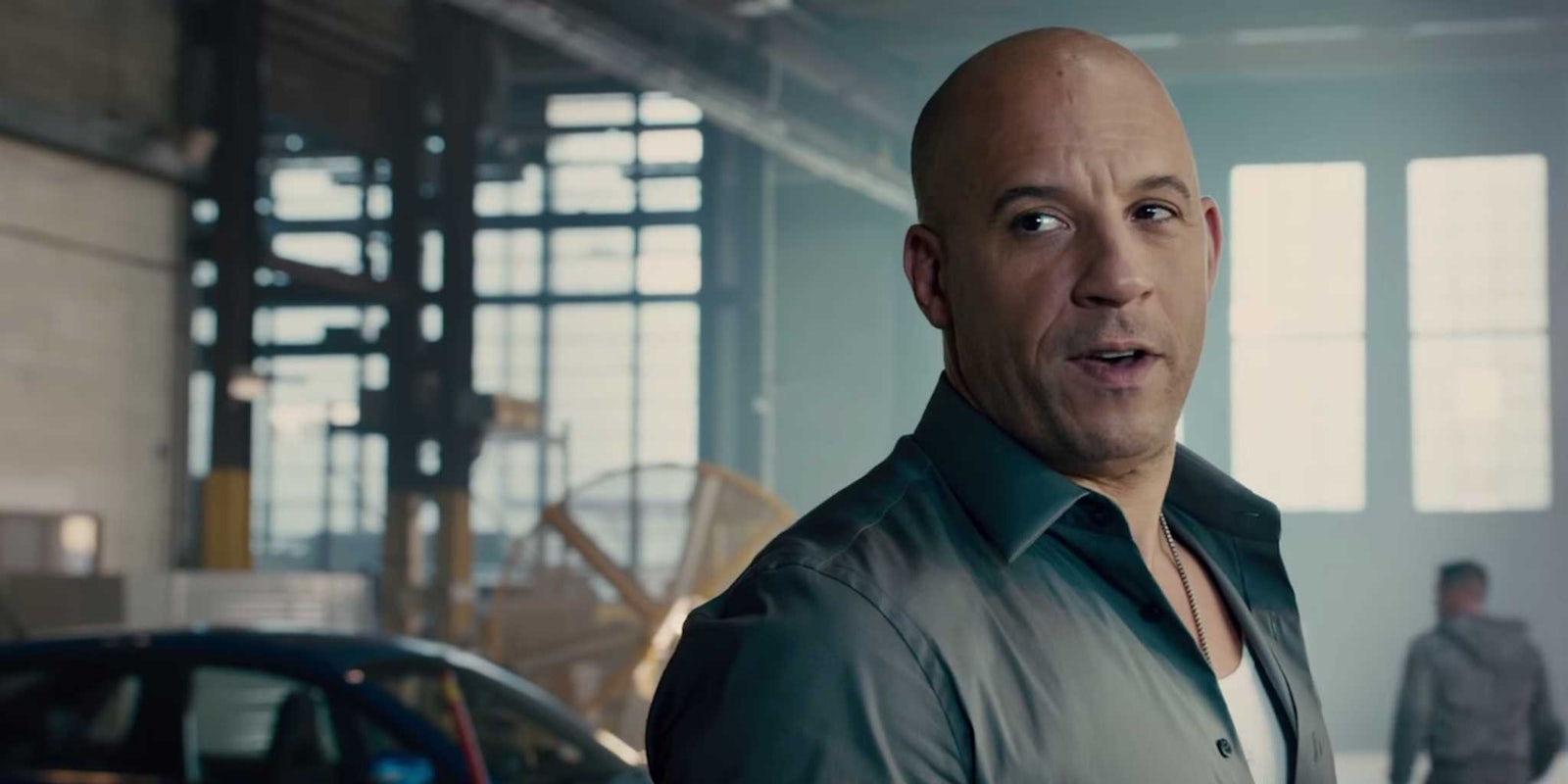This article contains spoilers.
The Internet was rather amused this week when Vin Diesel, producer and leading man of the high-octane blockbuster Furious 7, predicted the film would sweep the 2016 Oscars. “This will win best picture,” he said. “There is nothing that will ever come close to the power of this thing.”
And he’s absolutely right.
I’m not some franchise fanboy, mind you. I haven’t seen the previous six The Fast and the Furious films. I suppose I technically watched the first, but that was just to hook up with someone who loved it and, well, mission accomplished. (If you’re reading this, Kate, I’m sorry.) I had no true investment in the storyline up to this point, but by the end of Furious 7, I was reeling. I felt I had rediscovered a hundred dormant emotions. I applauded like a madman.
There’s a scene in which U.S. Diplomatic Security Service special agent Luke Hobbs, portrayed by the magnificent Dwayne “The Rock” Johnson, realizes that his fellow protagonists are in trouble—and that only he can save them. But he’s laid up in a hospital bed, nursing a broken arm. Glowering with concentration, he flexes his bicep and the cast just crumbles off him. The audience screamed its approval. Imagine a movie made of nothing but these moments. That’s what Furious 7 is. It’s the moviest movie that ever movied. It’s divine.
Think, if you will, back to the 2015 Oscars. The media narrative pitted Boyhood against Birdman, two painfully overserious films that wrestled with the nature of consciousness, identity, and ambition. Neither comes close to matching the soulfulness of Furious 7, not to mention the adrenaline, the spectacle, the evident joy of art for art’s sake—all the things that used to draw us into the cineplex. Furious 7 is a towering rebuke to every gritty reboot and cynical sequel, every director who insists that superheroes need to be moody and tortured, every critic who cries “style over substance.” When you’ve got style to spare, flaunt it.
The structure here is breathtakingly simple. A campaign of bloody revenge sets things in motion, with three acts featuring three escalating chase scenes—in the mountains of Azerbaijan, the luxury skyscrapers of Abu Dhabi, and finally downtown Los Angeles. There are no real surprises; each turn of the script registers as inevitable and just. There are plot holes the size of the Grand Canyon, but you will never care less about continuity. Furious 7 doesn’t politely ask you to suspend disbelief but annihilates it with a fusillade of machine gun fire.
Credit is certainly due to the cast. Actors in popcorn fare often struggle to walk a line between studious commitment to premise and winking self-awareness, but Vin Diesel, Michelle Rodriguez, Ludacris, and Tyrese Gibson wear their ridiculous roles like second skins. Even the mostly wooden Paul Walker charms his way through fistfights, and the closing tribute to the late star packs an amazing punch. It’s actually possible, when watching Furious 7, to forget that anyone is acting, so much do these characters seem themselves and of their backgrounds, values, and heroism. There’s no doubt they go on living after the final credits roll.
If I wanted to make the case that Furious 7 is “important” in the conventional Oscar sense, I’d point out how it repackages a stinging critique of our surveillance state as a universally accessible, stunt-driven thriller. We see the abuse of powerful face-recognition software. We encounter a terrorist who has somehow gotten his hands on an American Predator drone—and, in a high point, Johnson executes it with two bullets to the “brain” after knocking it out of the sky with a stolen ambulance. The arch-villain is a rogue, ex-MI5 spy (Jason Statham, once again auditioning for the Terminator series) who hacks his way to virtual omniscience and has the uncanny ability to appear wherever he can do the most damage.
The idea that you can always be found out or plucked from the matrix of human connections by evil forces—that one can’t disappear or blend into a background—haunts the whole of Furious 7. So does the allure of danger. Both are tropes of the crime genre, of course (“Just when I thought I was out… they pull me back in”), but the movie frames these and other clichés as if it invented them.
That audacity alone propels it into the stratosphere of screen satisfaction. The one-liners will live in infamy. The hot rods will roar for eternity. The genuine laughter, love, and lingering sense of a brighter tomorrow will never be diminished. You could call this movie shameless, but that suggests there’s anything to be ashamed of.
And I can’t wait to watch it again.
Photo via Fast & Furious/YouTube

